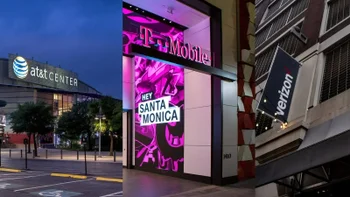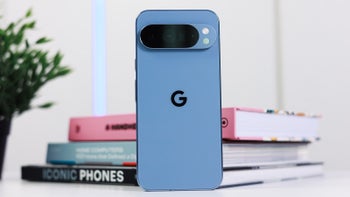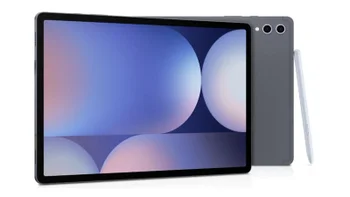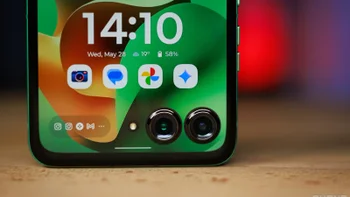Verizon's rapid 5G network expansion leads to unfortunate residential cell towers

Verizon is in the midst of its biggest network expansion trying to bring its high-speed, low-coverage 5G mmWave network to more places and at the same time mix it with mid- and low-band spectrum for as wide a 5G coverage as possible.
In the process, Verizon is also retrofitting its existing 4G LTE network infrastructure with 5G transmitters and more modern technologies to such a great success that its 4G network is often faster than the low-band 5G one.
With the advent of 5G, which requires a much denser and more numerous amount of base stations, those ugly ducklings in an urban environment are poised to cause more and more community backlash. Local City Councils usually learn too late and in horror that an FCC rule for "small wireless facilities" would mandate precisely such 5G installations unless the cities submit considerations on aesthetic grounds in a fairly short timeframe.
Given that there are three major carriers, each with their own 5G network, one could see that the small town charm of many a place could quickly be ruined. According to the National League of Cities, "this can result in clusters of small cells that are visually unappealing and detract from the aesthetic of the community."
Needless to say, the FCC has made approving 5G base stations on existing infrastructure easier for a reason - American competitiveness in the global push who will cover their nation with the next-gen connectivity standard the fastest. Small cell facilities are a big part of that project, as 5G base stations may need to be just a few hundred feet apart to blanket the locals with ultrafast coverage.
This is why the FCC rule has fast-tracked the small cell facility rollout procedures by mandating a very short window for approval, and capping the amounts that towns can charge for these 5G clusters on utility poles or lamps.
This rapid network buildout to more places than ever, including its staple rural coverage, requires a lot of the so-called "small nodes," as the mmWave network needs a pole every 1000 or so feet in order to deliver those gigabit speeds that Big Red boasts about in marketing materials.
These nodes were originally scheduled to go on lamp posts and utility poles, but, as the residents of one Omaha, Nebraska neighborhood learned the hard way, this is not always possible to pull off. After all the scheduling and the permits, instead of the parking or the home's lawn, Verizon's cell phone tower ended up in the middle of the narrow sidewalk.
You don’t see this everyday. A cell phone tower was built in the middle of the sidewalk. Now the homeowner wants answers. The city says a state law is preventing them from getting the tower removed. Full story at 5. @WOWT6News pic.twitter.com/LQEZlAa5Fb
— Ashly Richardson WOWT (@AshlyWOWT) July 23, 2021
Needless to say, after the brouhaha that the neighbors caused with city planners, the city lobbyist, law department, and even the state senator, Verizon was forced to explain itself on the "small node" matter:
The planned location for the Verizon small cell node at 55th & Poppleton in Omaha was initially near the green space south of the sidewalk between the curb and sidewalk. However, during site planning, it was discovered that multiple utility lines existed in the area. Accordingly, Verizon coordinated with the City of Omaha to avoid the other utility lines by extending the sidewalk south in order to place the pole on the upper north half of the sidewalk. The City’s planned sidewalk extension also allowed the Verizon pole to be set further from the border of the right-of-way and avoid being closer to the adjacent property.
There you have it, if you want fast 5G and 4G, there will be infrastructure compromises to be made. That goes for all carriers, of course, not just Verizon (it just has the largest US network coverage), and some of it seemingly comes down to federal regulators asking for hard to achieve 5G network rollout targets and rural coverage quotas.
A 5G network expansion's ugly reality
With the advent of 5G, which requires a much denser and more numerous amount of base stations, those ugly ducklings in an urban environment are poised to cause more and more community backlash. Local City Councils usually learn too late and in horror that an FCC rule for "small wireless facilities" would mandate precisely such 5G installations unless the cities submit considerations on aesthetic grounds in a fairly short timeframe.
From the moment a carrier submits a 5G facility request to a town, the locals have 60 days to process it when it comes to pre-existing structures like lamp posts, and 90 days for new construction such as on buildings. That's too short of a notice, and if the councils fail to raise any objection, the FCC rule stipulates, the installation request has to be automatically granted.
Given that there are three major carriers, each with their own 5G network, one could see that the small town charm of many a place could quickly be ruined. According to the National League of Cities, "this can result in clusters of small cells that are visually unappealing and detract from the aesthetic of the community."
This is why the FCC rule has fast-tracked the small cell facility rollout procedures by mandating a very short window for approval, and capping the amounts that towns can charge for these 5G clusters on utility poles or lamps.
According to the FCC, this ruling safeguards against "regulatory barriers that would unlawfully inhibit the deployment of infrastructure necessary to support these new services." This is way we can't have nice things but rather end up with small cell phone tower nodes in the middle of the sidewalk. We hope it's at least blasting gigabit speeds to the resident.
Follow us on Google News












Things that are NOT allowed:
To help keep our community safe and free from spam, we apply temporary limits to newly created accounts: